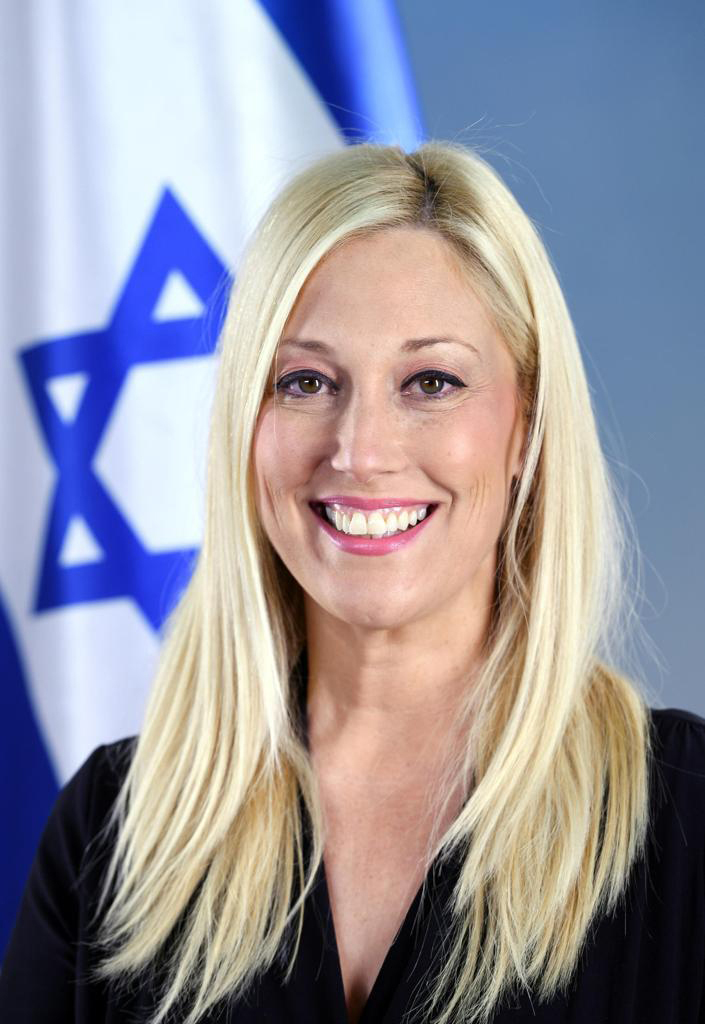
Israel

What on earth is going on in Israel?
Published
1 year agoon
Since the launch of the newly-elected Netanyahu-led coalition several months ago, Israel’s politics have been roiled by a profound internal debate over a series of judicial reforms proposed by its new government.
At its core, Israel’s ruling coalition seeks to “rebalance” the composition and authorities of Israel’s Supreme Court to bring it more in line with and make it more subservient to the country’s executive branch. That is, in the coalition’s view, given the relatively strong activism which the judicial arm in general and the Supreme Court in particular has practiced in the past 20 years, perceived by some to override the will of the people and their elected politicians. In practice, since the transformation and strengthening of the Supreme Court, put in place by former Supreme Court judge and world-renown jurist, Aaron Barak, 22 decisions taken by the Israeli Knesset have been overturned by the Supreme Court until today. For some, that’s “only 22” in several decades. For others, it’s “22 whole decisions based on the will of the people”.
Judicial overhaul is opposed by many in Israeli society, as the Israeli political system lacks the checks and balances to the executive arm which exist in many other Western countries, such as a second house of legislation, the senate, or a Constitution. Thus, the Supreme Court remains at times the only authority able to contest the actions taken by the political executive and/or legislative arm in Israel.
The resulting political crisis now engulfing the country is the most consequential in Israel’s 75-year existence.
Though many Israelis agree on the notion that Israel’s Supreme Court should be reformed to some degree, the way in which this transformation was intended to occur by the current ruling coalition took the public by surprise. An overhaul of the judiciary did rank as a priority for the current government when it took office late last year. Yet, the intensity and pace of the recent attempt to put this significant legislation into practice, without what appears to be sufficient public and legislative discourse within the relevant legislative committees in the Knesset, has raised unprecedented havoc.
A distinct lack of trust between the country’s political left and right, together with a strong opposition to long-serving Prime Minister Benjamin “Bibi” Netanyahu, have also undeniably spurred on hundreds of thousands of Israelis to demonstrate on a weekly basis since January 2023. Nonetheless, demonstrators also include the older generation, which has had a hand in the creation and the establishment of the state of Israel; some of Israel’s “salt-of-the-earth” Israel Defense Forces reserve officers and soldiers; significant high-tech engineers and young businesspeople; an unprecedented number of Russian speakers who had previously refrained from taking to the streets for any reason; as well as a growing number of Likud voters, who hold onto their right-wing political views but don’t any longer see in the current government a responsible and trustworthy leadership.
The situation has a significant and growing impact on Israel’s economy. In mid-April, credit rating agency Moody’s downgraded Israel’s economic outlook from “positive” to “stable”. While last year, Israel’s economy grew by more than 8%, suggesting that the fundamentals of Israel’s economic performance remain sound, the future looks less rosy. The country has received virtually no foreign direct investment since the start of the year. Capital flight is also evident, with an estimated $4 billion (R76.2 billion) departing until today. Thankfully, no other downgrades have been made, a fact which Netanyahu and Finance Minister Bezalel Smotrich hail as economic success, yet this trend may not continue if the reform does go through, and given the mounting financial instability which is exacerbated by the coalition’s recent passing of a budget which includes unprecedented amounts of “coalition funds” to be forwarded to the ultra-Orthodox sector, in which lack of economic growth is a factor.
Under immense pressure created by ongoing demonstrations coupled with many international and local analyses warning of significant economic repercussions, Netanyahu temporarily tabled the judicial overhaul, pledging to take up the issue once more later this year.
Negotiations between the government and Israeli opposition representatives continue under the auspices of President Isaac Herzog. However, massive protests against the measures continue, particularly given the acute lack of trust of large portions of the Israeli public in the fact that these talks are held in good faith. Messaging from certain, more moderate, factions of the opposition allow for the possibility that these talks will, indeed, lead to an agreed solution. Yet, that is coupled with significant scepticism even amidst the most moderate amongst them. Others, however, are outrightly distrustful of the sincerity of the talks, and voice their fear that this is yet another mechanism of manipulation orchestrated by Netanyahu to divert attention away from other disputable legislation that is simultaneously being pushed by the coalition.
Strategically, observers are adamant that the recent political unrest has emboldened Israel’s adversaries, who are now actively testing whether the country remains as strong as it was before. Israel’s recent strong retaliation to the Jihadist launch of rockets unto Israeli civilians was certainly an attempt to indicate that despite internal strife and division, Israeli military capability and willingness to protect its citizens, no matter who is at the helm, remains strong. While the military operation was taking place, most demonstrators didn’t return to the streets, both owing to the security threat as well as to demonstrate that there was no division when it comes to Israel’s security. Those who did demonstrate were mostly hardcore Jewish and Arab leftist activists. However, with the operation over, demonstrations will undoubtedly persist with vigour while negotiations continue behind closed doors in the presidency. That is, in parallel with ongoing legislative moves promoted and led by the coalition which many civilians find increasingly disturbing.
The turmoil has also had an adverse effect on what is arguably Israel’s – and more-so – Netanyahu’s most important foreign policy achievement: the Abraham Accords. Two-and-a-half years old, the normalisation agreements signed in 2020 between Israel and the United Arab Emirates, Bahrain, and Morocco have reaped enormous dividends for the Jewish state, including a surge in regional economic activity, tourism, and closer political contacts with once-inaccessible neighbours. Publicly, analysts have maintained an optimistic outlook about this “new era” of ties and of the prospects for future partnerships (including with Saudi Arabia). In practice, the agreements have entered a kind of “observation period”.
Given the aforementioned developments, and for the first time in years, recent polls are unflattering to Likud, while showing growing support for the Centrist National Unity Party of former Defense Minister Benny Gantz. It appears that the Israeli public is tired of division, strife, and internal chasms. Yet with the volatility and constant change in the Israeli internal arena, not to mention the fragile security situation, it’s still unclear how this will all play out.
- Ruth Wasserman Lande is a former National Unity Party member of Knesset, former Israeli deputy ambassador to Cairo, and advisor to President Shimon Peres. She’s also the founder of Ruth-Strategic Consulting.










